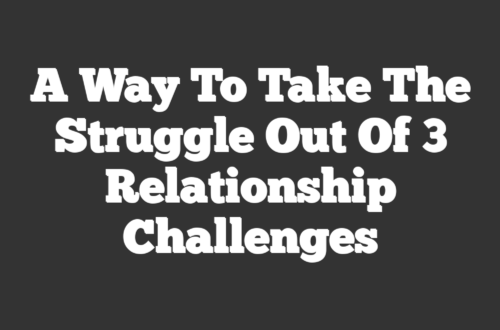Sometimes, you just get that feeling. Something’s off, and you can’t quite put your finger on it. Has your partner started acting differently, or is it all in your head? It’s tricky, right? You start wondering about every little detail, every short reply, every missed call. This article is for those moments.
Here, we’ll walk through the signs that might hint your partner is pulling away. But, let’s be honest, realizing this is just the start. What really matters is what you do next.
So, are you ready to find out what these signs are and, possibly, how to turn things around?
They Talk Less About the Future
Have you noticed a sharp drop in conversations about the “what’s next” for you two? When a partner starts to lose interest, dreams about future vacations, family events, or even simple weekend plans might suddenly seem off their radar.
What it looks like:
- Last year, planning your holiday was a month-long excitement. Now, suggesting a weekend getaway gets a “We’ll see.”
- They used to talk about moving in together or job opportunities in new cities as a team effort. Now, it’s more about individual choices.
This change doesn’t mean you press the panic button right away. It’s a signal to start a conversation with your partner. Ask open-ended questions about their feelings toward the future.
They’re Less Interested in Spending Time Together
Remember when just walking in the park or binge-watching a TV series felt like the best part of your day? When someone’s interest starts waning, these simple joys don’t hold the same value. Your partner might find reasons to spend time apart more than together.
Imagine this:
- Instead of your usual weekend movie nights, they now have “urgent” work tasks.
- Your dinner dates are becoming more of a solo affair with excuses like “I’m just not feeling up to it today.”
Their Texts and Calls Become Less Frequent
In the early days, waiting for their text or call was thrilling because you knew it was coming. But what happens when those messages start coming in slower, or maybe not at all? It’s a clear sign that something’s shifted.
Example: The back-and-forth texting about how your day is going has turned into a once-a-day, emotionless check-in.
However, this doesn’t have to mean the end. Priorities shift, and life gets busy, but it’s about making an effort. Suggest specific times for a catch-up call or plan a no-phone dinner to focus solely on each other.
They Stop Asking About Your Day
When your partner stops asking about your day, it might feel like you’re becoming invisible in your own relationship. This small gesture, asking how your day went, means “I care about you.” When it disappears, the silence can feel louder than words.
Remember when you used to share even the mundane things because they made listening special? Keeping that spark of curiosity alive is key to feeling connected.
What to do: Share something interesting from your day, even if they don’t ask. It might just reignite that habit of sharing. Also, check if there’s a deeper issue. Sometimes, stress or worry makes us forget the usual things that we do.
They’re More Irritable or Critical of You
If your partner seems to have a shorter fuse lately or everything you do seems wrong in their eyes, it’s a sign their feelings might be changing. Criticism, when constructive, can be healthy, but when it feels like you can’t do anything right, it wears down on you.
How to deal with criticism:
- Offer kindness: Sometimes, what’s seen as criticism is them offloading their stress. Responding with kindness can sometimes break down their walls.
- Seek clarity: Ask for examples when they criticize. Understanding specific issues can help address the root cause.
- Set boundaries: It’s important to communicate that while you’re open to constructive feedback, constant negativity is harmful.
Criticism, like rain, should be gentle enough to nourish growth without destroying the roots.
— Frank A. Clark
They Avoid Physical Contact
Touch is a language all on its own in relationships. A simple hand-hold or hug can say “I love you,” “I’m here for you,” or “I’m sorry” without a single word. So, when your partner starts to avoid these small moments of connection, it can feel like a rejection. The warmth that once pulled you closer now seems miles away.
Consider these steps:
| Step 1: Acknowledge the change | Sometimes, bringing awareness to the change in physical contact is enough to spark a conversation about underlying issues. |
| Step 2: Express your needs | Gently express how much you value physical touch in your relationship and how its absence has made you feel. |
| Step 3: Give space when needed | If they’re going through a tough time, understanding their need for space can be an act of love, too. |
They Spend More Time on Their Phone
Has it ever felt like your partner’s phone is the third wheel in your relationship? It’s frustrating when you’re sitting together, hoping to connect, and their attention is glued to a screen. This might not just be an annoying habit; it could signal that they’re finding more interest in the virtual world than in your shared moments.
What to do: Notice when it happens — is it during meals or when you’re trying to share something important? Then, try to suggest phone-free times. Creating times during the day when phones are put away can help you reconnect.
They Make Plans Without Considering You
When you’re in a committed relationship, most plans have a “we” in them. So, it’s a red flag if your partner starts making significant plans without even a mention to you. Whether it’s a night out or a holiday, realizing you’re an afterthought in your own relationship is a painful pill to swallow.
Example: You find out through a friend about your partner’s weekend getaway plans, and it’s the first you’re hearing of it.
How to handle this situation:
- Communicate your feelings without accusing. Start sentences with “I feel” rather than “You never.”
- Ask for a mutual understanding of how decisions should be made together.
- Understand their perspective. Is this a sign of a deeper issue in the relationship or an oversight?
They Show Less Interest in Your Life
Feeling like the person who used to be your biggest fan is now just a passive audience can be disheartening. When your partner shows a lack of interest in your life, it’s as if your day-to-day experiences, struggles, and achievements don’t matter to them anymore.
What to do: Share examples of when you felt unheard or unseen. It’s important to be specific. Then, Ask if something has changed. Sometimes, a decrease in interest is a symptom of larger issues either personally for them or in the relationship.
They Stop Making an Effort to Impress You
In the beginning, wasn’t it fun to see how your partner would try to catch your eye or make you smile? Maybe it was dressing up for dates or cooking a favorite meal. Over time, if those efforts start to fade, it might not just be comfort settling in; it could be a sign of lost interest.
When someone stops putting in the effort to impress you, it can feel like they’re taking your affection for granted.
To address this, remember:
- Lead by example: Sometimes, re-igniting the spark is about showing them the way by making your own efforts.
- Set up date nights: Planning special evenings where both of you put in some extra effort can remind you both of the joy of impressing each other.
Consistency is key. Keeping a relationship vibrant means putting in the effort even when things seem perfect.
They’re Reluctant to Make Long-Term Plans
Are you the only one talking about future vacations or even where to spend the holidays together? When your partner dodges conversations about the future or is hesitant to make long-term plans, it signals uncertainty.
How to handle this situation:
- Discuss the importance of future planning.
- Find out the reason for their reluctance. There could be underlying fears or concerns they haven’t voiced yet.
- Start with short-term plans, as this can be less intimidating and a way to build towards bigger ones.
They Withdraw Emotionally
Emotional withdrawal is like an invisible barrier that can grow between you and your partner. It’s more than just being physically distant; it’s when sharing thoughts, feelings, and day-to-day experiences starts to diminish. This withdrawal can leave you feeling alone even when you’re together.
What it looks like:
- You share something that happened during your day, hoping for a discussion or even a laugh together, but the response is minimal, or they change the subject.
- In moments when you used to turn to them for support or to celebrate successes, you now hesitate because their emotional response has become unpredictable or absent.
- Evenings that were once filled with conversations about anything and everything now pass in silence, with both of you on your own devices or engaged in separate activities.
Their Body Language Is More Closed Off
It’s amazing how much we communicate without even saying a word. Our bodies often tell the real story of what we’re feeling. When a partner starts crossing their arms more, avoiding eye contact, or turning their body away from you during interactions, it might indicate they’re closing off emotionally and physically. This shift in body language is a non-verbal cue that they might be pulling away.
What it looks like:
- During a conversation, you notice they’re not facing you directly but are angled away.
- Their hugs become brief and feel obligatory rather than warm and inviting.
- Eye contact, which used to be constant, is now fleeting or avoided altogether.
They Stop Saying “I Love You”
Words have power, especially those three little ones that mean so much. When “I love you” starts disappearing from your conversations, its absence can feel like a cold shadow over your relationship. This doesn’t necessarily mean love has vanished, but perhaps it’s being taken for granted, or there are underlying issues preventing your partner from expressing it.
Take our FREE Relationship Quizzes (no email sign-up necessary):
What to do: Assess if the change is recent or has been gradual. Then, open up a gentle conversation about how important those words are to you. Lastly, be prepared to listen. Sometimes, there are reasons why they might hold back those words.
Sharing thoughts and feelings is like the lifeblood of a relationship; it keeps you connected and helps you navigate the world as a team. When your partner starts keeping their worries, dreams, or daily experiences to themselves, it can leave a gap that slowly widens. This silence can stem from many reasons, including feeling like their words won’t be valued or understood.
What to do: Initiate conversation — sometimes, they might not even realize they’ve been so quiet. Start talking about your thoughts and feelings and invite them to share theirs.
They Avoid Discussing Relationship Issues
Facing challenges head-on is crucial in any relationship. It’s how you grow and get stronger together. But what happens when your partner starts dodging these important conversations? It’s like they’re saying, “I’d rather pretend everything is fine than work through our problems.”
How to handle this situation:
| Take the first step: | Bring up lighter topics to ease into deeper discussions. |
| Share how you feel: | Explain the importance of tackling issues together for the health of your relationship. |
| Offer comfort and support: | Assure them that these conversations are about finding solutions, not assigning blame. |
They’re Less Enthusiastic About Physical Intimacy
When the warmth fades, and the space between you grows, it can feel confusing and lonely. A decrease in physical intimacy isn’t just about less time between the sheets; it’s about missing the little touches, the close dances in the kitchen, and the quick kisses before work. It’s these moments that say, “I’m here with you, for you.”
What to do: Without pressure or blame, share your feelings about the shift in your physical connection.
They Make Excuses to Be Apart
Suddenly, there seems to be an endless list of reasons why you can’t spend time together. “I’m busy,” “I have plans,” or “Maybe some other time” become the regular responses to any suggestion of shared time. This pulling away can leave you feeling sidelined in your own relationship, questioning where you stand and what tomorrow might hold.
How to handle this situation:
- Politely ask if there’s a specific reason for the increased time apart.
- Let them know that their presence means a lot to you and you miss them.
- Sometimes, having a set date or activity can lessen the chance of a vague excuse.
Their Friends Seem to Be a Priority Over You
It’s natural and healthy for both partners to have their own friends and hobbies. But, when it seems like their friends always take front and center over your relationship, feelings of being sidelined can emerge. You might notice your plans together become the backup option if nothing else comes up for them.
What this looks like:
- You plan a nice evening together, and at the last minute, they switch plans because a friend called.
- Group outings with friends start happening almost every weekend, leaving little to no exclusive time for you two.
They Don’t Notice Changes About You
When someone cares about you, they tend to notice the little things – a new haircut, a fresh outfit, even a slight mood change. If your partner stops noticing these details, it might feel like they’re not paying attention to you like they used to. This lack of observation can make you feel invisible in their eyes.
What to do: Sometimes, they may not realize they’ve been less observant. A gentle reminder can steer them back to being more attentive.
They Seem Happier or More Relieved Alone
Everyone enjoys a bit of alone time now and then; it’s a chance to recharge and focus on personal interests. However, if your partner consistently seems happier or more at ease when they’re alone, it may hint at deeper issues in your relationship. This distancing can be particularly hard to address because it touches on emotional satisfaction and well-being.
Here’s what you can do to approach this:
- Start a conversation about how they feel when you’re together and when you’re apart. Don’t make any assumptions; just listen and understand.
- Think of the happy times you’ve shared in the past. Try bringing those moments back into your routine.
- Consider getting external help, like couple’s therapy. Sometimes, having a neutral space to express feelings can uncover solutions you hadn’t considered before.
They Have Stopped Apologizing or Making Amends
In any relationship, misunderstandings and mistakes are bound to happen. What’s important is how you handle these bumps in the road. Apologizing and making amends shows that you value the relationship over your ego. But when your partner stops doing so, it can feel like they don’t care about the impact of their actions on you or the relationship.
| Notice the pattern: | Does it seem like they’re avoiding responsibility for things that go wrong? |
| Talk about it: | Let them know how their unwillingness to apologize affects you and the relationship. It’s about understanding each other and growing together. |
| Encourage openness: | Remind them that admitting mistakes and working through them strengthens the bond you share. |
They Show Little Concern Over Your Other Relationships
It’s healthy to have a life outside of your romantic relationship, including friendships and connections with family. When your partner shows little to no interest in your interactions with these important people, it might signal a disconnection. Caring about each other’s social circles is part of caring for each other. When this fades, it can feel like a part of your shared life is being neglected.
What to do: Suggest ways they could be more involved or show interest, even in small ways.
They’re Not Excited by Your Successes Anymore
Sharing achievements and milestones with your partner is one of the joys of being in a relationship. Their excitement for your successes reflects their love and support for you. When that enthusiasm wanes, it can make your victories feel less significant and even lonely.
What it looks like:
- You get a promotion at work, and their response is along the lines of “That’s nice” instead of celebrating with you.
- When you’re excited about a personal goal you’ve achieved, they barely look up from what they’re doing to acknowledge it.
- Sharing news about successes starts to feel like you’re just speaking into the void because the supportive spark that once ignited such conversations is missing.
They Rarely Initiate Conversations
Communication is the heartbeat of any relationship. It’s how you share your day, your thoughts, and your life with your partner. But what happens when you notice that you’re always the one starting conversations? This change can feel like they’re no longer interested in sharing those daily moments with you.
What it looks like:
- You find yourself consistently sending the first text or making the first call to check in.
- Conversations that used to flow naturally now feel like you’re pulling words out of them.
- Silence has become a common companion during times that used to be filled with chatter.
They Don’t Laugh at Your Jokes Like Before
Laughter is a powerful tool in any relationship, creating moments of joy and a sense of closeness. When your partner no longer laughs at your jokes like they used to, it can feel like a small, yet significant, piece of your connection is fading away. The jokes haven’t changed, but the response has, and it doesn’t go unnoticed.
What to do: Ask if there’s anything on their mind that’s been affecting their mood or response to you lately.
They Seem Distracted During Conversations
Being present in each conversation is how you show your partner they have your full attention and vice versa. But when they start appearing distracted during your talks, it’s like they’re there in body but not in spirit. This detachment can leave you feeling unheard and unimportant.
What it looks like:
- You’re sharing details about your day, but their eyes are on their phone, only half-listening to what you’re saying.
- In the middle of a conversation, they suddenly shift the topic to something unrelated, showing they haven’t been fully engaged.
- When you ask for their opinion on what you’ve just shared, they struggle to recall the details, indicating their thoughts were elsewhere.
They Don’t Make Efforts to Resolve Conflicts
In any relationship, conflicts are inevitable. However, it’s not the presence of conflict but how it’s handled that defines the strength and health of the partnership. When your partner starts showing a lack of interest in resolving disagreements, it can feel like they’re not invested in the relationship’s future.
This lack of effort to find common ground or solve issues can lead to unresolved tensions and a feeling of being stuck.
What it looks like:
- After a disagreement, instead of trying to talk it out, they withdraw or change the subject.
- They dismiss your attempts to discuss the problem by saying things like “It’s not a big deal” or “Let’s just drop it.”
- There’s a pattern of unresolved issues piling up because they’re not addressed properly.
They Show Less Support for Your Goals
Having a partner who cheers for your dreams adds so much energy and belief to your efforts. But if you start feeling like you’re on your own, reaching your goals can suddenly seem harder. This change can affect both how you view your future and how you connect as a couple.
Here’s what you can do to feel more connected:
- Talk about what support means to you both. Share your needs and listen to their needs, too.
- Look back at the wins you’ve had together. Remember how supporting each other made those moments special.
- Set goals together, alongside personal ones. This helps build a team spirit.
By talking openly about what you both want and need, you can bring back that feeling of being a team. After all, it’s all about making both of you feel important, heard, and motivated.
Love is the bridge between you and everything.
— Rumi
Frequently Asked Questions
What should I do if I notice these signs in my relationship?
Open, honest communication is key. Approach the topic gently with your partner, expressing your feelings and observations without blame. It’s also essential to listen to their perspective. Sometimes, professional counseling can offer valuable assistance in navigating these challenges.
Are these signs definitive proof that my partner wants to end the relationship?
Not necessarily. Relationships go through ebbs and flows, and these signs could indicate a temporary phase or underlying issues unrelated to their commitment to the relationship. Understanding the root cause is crucial before jumping to conclusions.
Can relationships recover after one partner has shown signs of losing interest?
Absolutely. Recovery often involves a mutual effort to reconnect, understand each other’s needs, and rebuild the intimacy and excitement that may have been lost. Many couples emerge stronger after working through such phases together.
What if my partner denies losing interest but continues to show these signs?
Denial can be a defense mechanism to avoid confrontation or admitting there’s a problem. It’s important to express how their actions affect you and suggest seeking help together. Sometimes, an external perspective, like that of a therapist, can help clarify the situation.
Final Thoughts
After reading through the signs, you might be wondering, “So, what next?”
It’s a lot to take in, right? The most important thing now is not to panic. Spotting these signs is not the end but a chance to hit pause and look closely at your relationship. It’s about figuring things out together, finding out what’s really going on, and tackling it as a team.
Talk to your partner. Yes, it’s scary, but it’s also necessary. Remember, it’s not about pointing fingers but understanding and supporting each other. Problems in relationships can feel big and scary, but often, they’re an invitation to make things even better than before.





